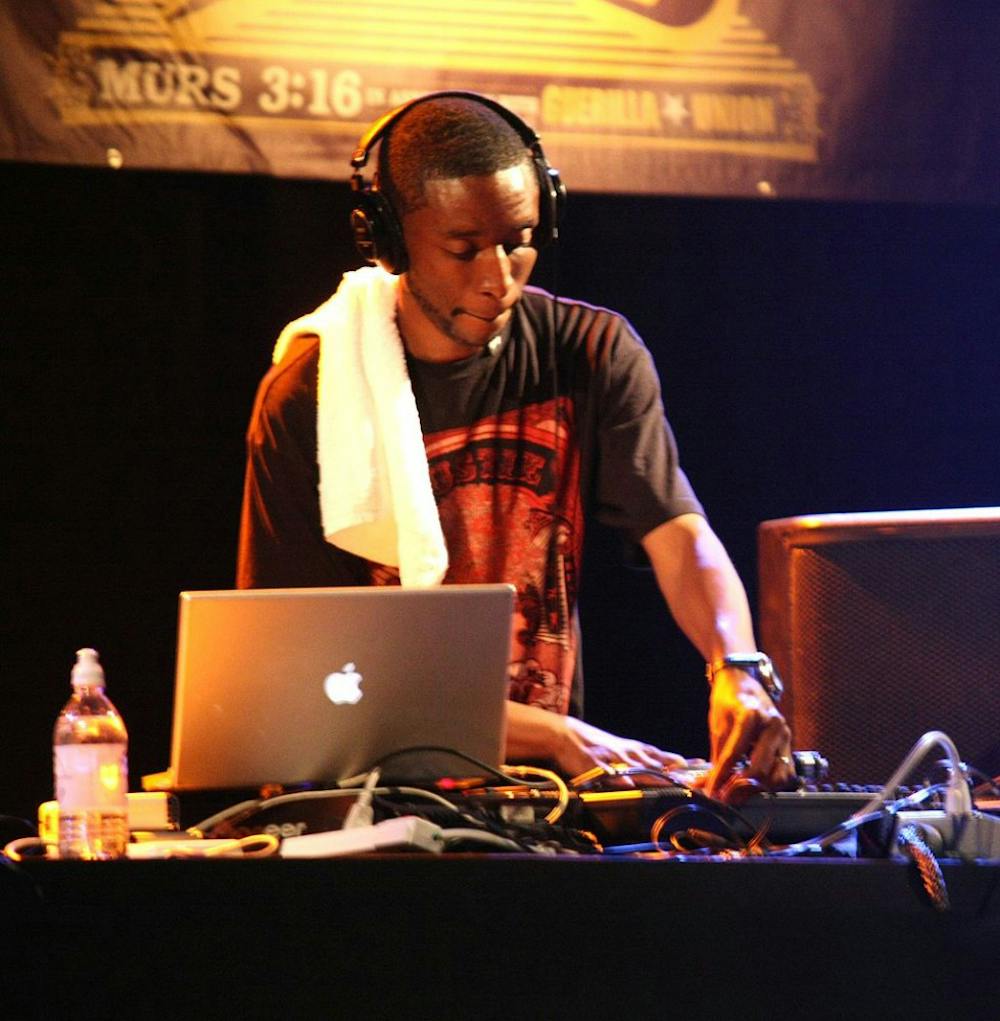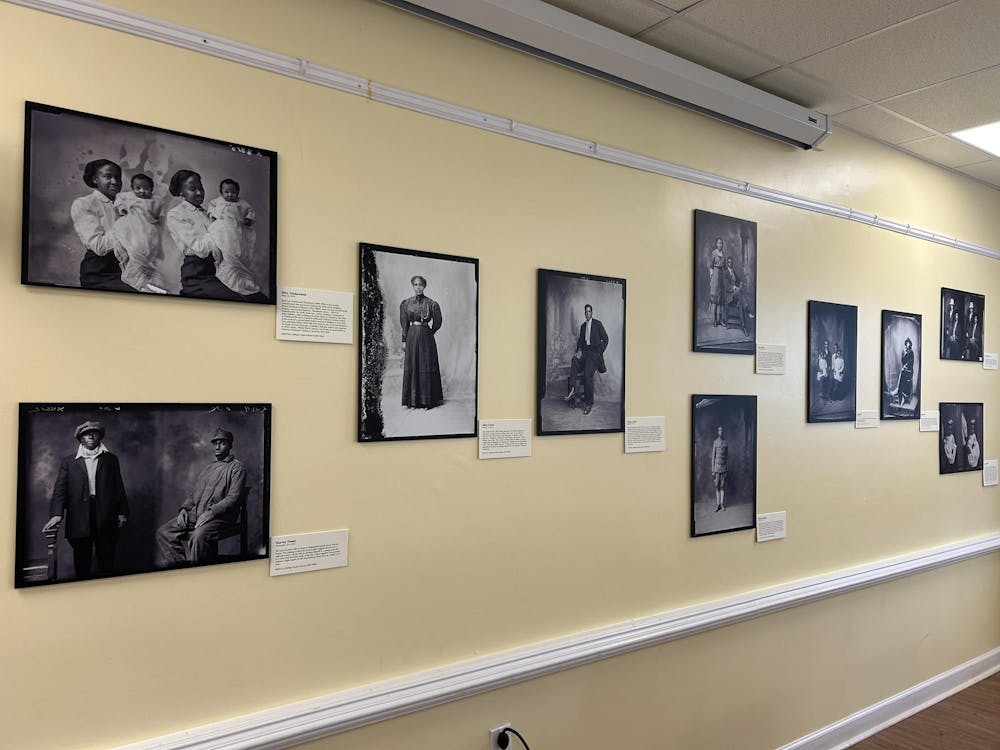Producer and artist-in-residence 9th Wonder gave a lecture March 31 in the Rotunda titled “The History of Hip-Hop.” The presentation ranged from the producer’s personal history with the genre to its overarching themes, and classic hip-hop samples provided enhancement throughout.
As the light from the Rotunda’s dome shone onto his glistening turntables, 9th Wonder began his musical journey with the smooth sound of Sam Cooke’s crooning.
“This was my mother’s pop music,” 9th Wonder said.
Growing up, 9th Wonder considered himself to be a “clarinet-playing band geek.” His eventual conversion to hip-hop began by listening to the will-not-be-silenced, fiercely passionate rap of Public Enemy and the body-rocking mood channeled by foundational group Africa Bambaata in “Planet Rock.”
Heads bopped as the producer spun “The Payback” by James Brown, which was surely no accident — the syncopated banks and unshakeable statement of “I’m mad!” guided the audience smoothly to an understanding of why more modern influences, like Kendrick Lamar’s “To Pimp a Butterfly,” made such an impression on 9th Wonder.
The discussion took a personal turn as he began discussing the evolution of music in his own life.
“Lineage matters,” 9th Wonder said as he projected an image of his family on-screen to help his audience understand the roots of his own musical tastes.
Having grown up in North Carolina in the prime of black music in the 70s, 9th Wonder’s preferences were shaped from all sides. One of the largest influences was his family — from his parents, who were groomed by Shirley Caesar types of gospel to his older brother, who introduced him to the the magic of the Motown-era. He also benefited from the fortune that came with growing up during the heyday of the black music central to modern-day hip-hop.
9th Wonder also explained the more technical side of his music and how it progressed over time. This included the move from “crate digging” to DJs selecting songs off of a Spotify playlist; the move from recording over his mother’s Shirley Caesar cassette tapes to downloading a song off of iTunes; and the changes in the vinyl material that helps a record scratch.
The songs 9th Wonder chose to play for his audience throughout the lecture, and the order in which he did so, were clearly intentional. Black music has consistently existed dialogically. There is no “Illmatic” without Michael Jackson’s “Thriller,” just as there is no “The Blueprint” without The Jackson Five’s “Going Back to Indiana.”
9th Wonder exposed his listeners to that exact concept — genealogy. During the question and answer portion of the lecture, an audience member asked the producer about the direction in which he believed hip-hop was going.
“I hope it keeps building on itself,” 9th Wonder said, returning to the pictures of the “family trees” that created the aforementioned albums.
The evolution of black music — one that cannot exist without a combination of gospel, soul, funk and even the forgotten roots of rock ‘n’ roll — has been intellectualized by 9th Wonder’s work as a Harvard student. At the University, students are rediscovering the abandoned practice of “crate digging,” constructing albums’ family trees and giving a voice to those artists in the ‘70s and ‘80s who came from low-budget production companies.
9th Wonder importantly showed that the intricately-woven DNA of hip-hop does for black genius what is always done for white genius — intellectualizes, academizes and ultimately reveres.







